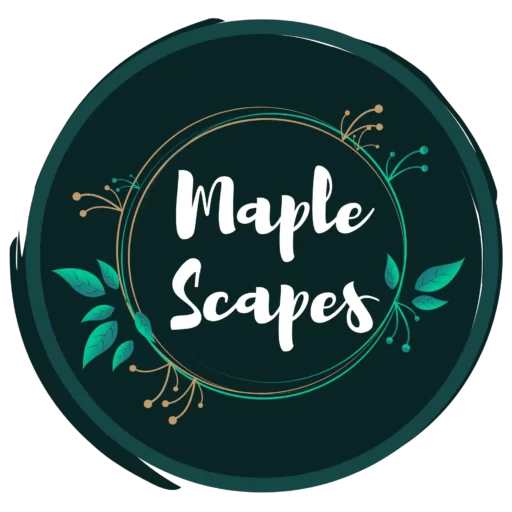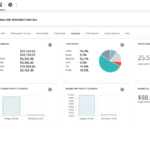Wanting to change Nevada’s landscape with your creative touch? Starting a landscaping business in the Silver State can be both inspiring and lucrative. But before you start planting and paving, you’ll need to meet some licensing and legal steps.
Whether installing hardscape, applying pesticides, or selling nursery plants, Nevada has specific rules.
This guide breaks down what licenses you need, how to get them, what they cost, and how long they take, and keeps everything easy to follow and fun to read.
Licensing Requirements for Landscaping in Nevada
a. Landscaping Business
i. Landscape Contractor License (C‑10)
In Nevada, any landscaping work worth over $1,000 or requiring a building permit needs a C‑10 Landscape Contracting license from the Nevada State Contractors Board (NSCB).
This license covers activities such as:
- Planting trees, shrubs, lawns, and vegetation.
- Laying sod, hydro‑seeding.
- Installing sand, gravel, rocks, drainage systems, xeriscapes, non‑engineered ponds, arbors, and soil erosion control features.
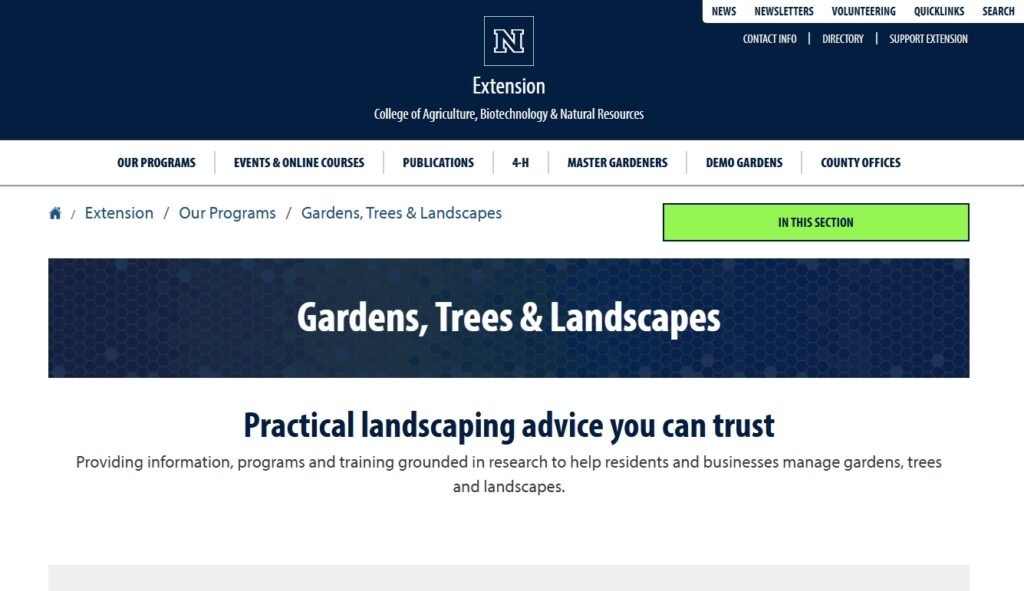
Get more information and practical advice about landscaping and boost your landscaping business.
ii. License Requirements
Demonstrate 4 years of experience in the past 10–15 years as a journeyman, contractor, or supervisor (some college credits can count for part of this).
- Pass the business & law exam and a trade classification exam.
- Provide proof of business insurance (liability, workers’ comp, etc.).
- Submit a surety bond, financial statements, and fingerprint/background check.
This is not required for simple mowing, trimming, or basic care, but any installation or planting beyond lawn care likely triggers the licensing requirement.
b. Pest Control
Applying pesticides, especially restricted-use types in landscaping, requires licensure through the Nevada Department of Agriculture (NDA).
i. Applicator Certification
Pass both a general core exam and one or more category exams (e.g., Urban & Structural, Aquatics, Weeds).
Exams are administered by NDA; study materials and training are available via the University of Nevada Cooperative Extension.
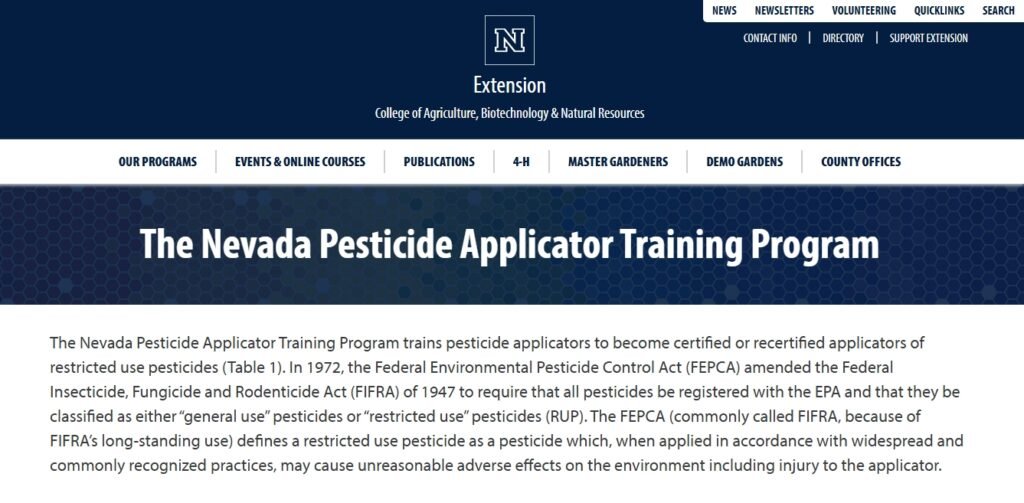
Visit to the official website of the Nevada Pesticide Applicator Training Program to get more authentic and reliable information for the pesticide applicator license.
The fee for the exam is around $50.
Note: License fees vary by role (e.g., operator, principal).
For instance:
- Operator license: $50 (plus exam fees)
- Principal applicator or business license: $250 (plus exam fees).
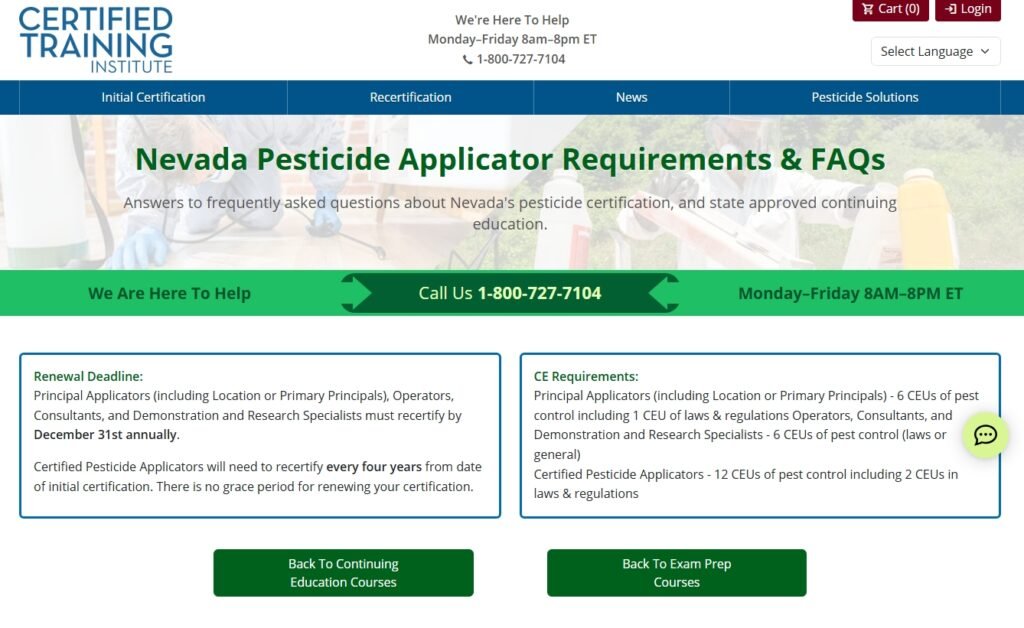
Here are the requirements and FAQs regarding the Nevada Pesticide Applicator License.
ii. Renewal & Education
You can renew the license annually by December 31.
Principals need CEUs (Continuing Education Units), including at least one on laws & regulations.
So, whether you’re spraying ornamentals or treating turf, you need to be certified and keep up with annual training.
c. Nursery Stock Sales & Dealer Licensing
If your landscaping services include supplying plants (trees, shrubs, sod, perennials), you must be licensed as a Nursery Stock Dealer with the Nevada Department of Agriculture.
Anyone offering nursery stock, whether sourced or held for planting, must hold this license, even landscape contractors.
Exceptions include:
- Indoor decorative-only houseplants.
- Hobby growers with occasional unadvertised sales.
- Bulb-only sellers, etc.
- Licenses fall into categories like Registered Place of Business (RPB), Peddler, or Broker, depending on your setup.
Fee structure example (from proposed rules):
- Base of $130 per location
- Plus $20 per acre over the first acre, up to $200 max.
- Unlicensed sales risk fines—up to $1,000 per violation.
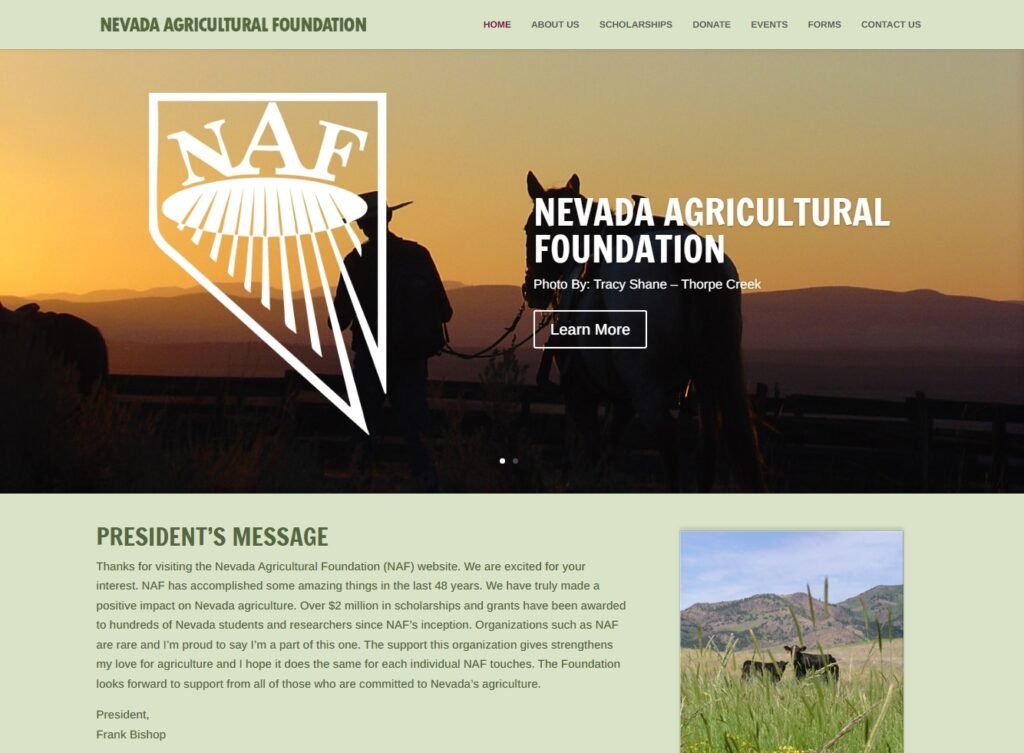
To know more about the Nursery Stock Dealer License, you can visit the official website of the Nevada Agricultural Foundation.
d. Other Requirements
i. Surety Bond
The NSCB requires a surety bond as part of the contractor licensing process; this protects clients if a job is unmet.
ii. Insurance
- Contractor license: Proof of liability insurance, workers’ comp, etc.
- Pesticide applicator certification: Certificate of insurance required for principal.
Even if not explicitly required for every service, having business liability ($100,000 body injury, $50,000 property damage, $5,000 medical) is wise, especially for client trust and risk mitigation.
iii. Business Registration
Register your business entity (LLC, sole proprietor, etc.) with the Nevada Secretary of State.
You’ll also need any local city or county business licenses before operating, even for unlicensed services like basic lawn care.
Important Links You Should Know
Nevada State Contractors Board
NDA – Nursery Licensing Info
Landscaping Associations in Nevada
For support and industry networking, check out Nevada Landscape and Green Industry Training offered through UNR Cooperative Extension. They host workshops and certification preparation and help landscapers stay compliant and connected.
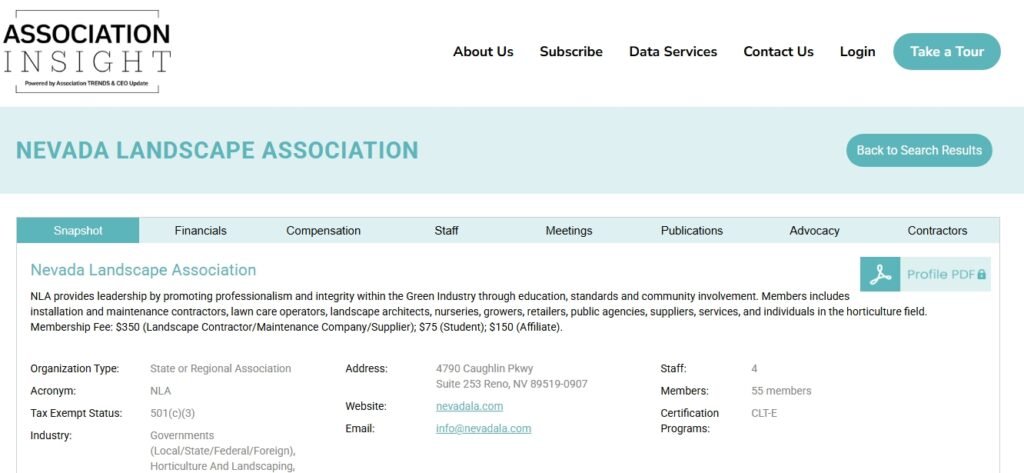
To know more about the landscaping association, you can visit the official website of Nevada Landscape Association.
You can fill out the membership application form to get Nevada Landscape Association Membership.
Notes & Beginner’s Checklist
Here’s your quick checklist to get started legally and confidently:
- Obtained a C‑10 Landscape Contractor license if doing planting, irrigation, or hardscape over $1,000.
- Completed 4 years of experience, passed exams, and submitted bond, insurance, and background check.
- Certified as a pesticide applicator (operator or principal) if applying chemicals, passing exams, paying fees, and doing CEUs annually.
- Hold on to the Nursery Stock Dealer’s License if supplying plants, apply by category and pay per-location and acreage fees.
- Have insurance coverage as required.
- Register your business entity and obtained any local licenses.
- Processing times: Contractor licenses often take several weeks; pesticide and nursery licenses take time but typically span 1–3 weeks.
